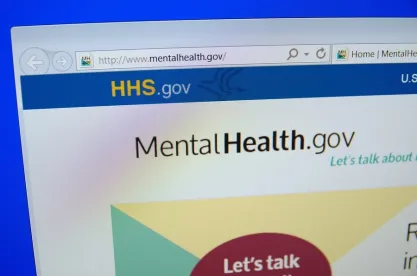The House was not in session and the Senate came back mid-month to focus on passing appropriation bills and presidential nominations.
This Week in Health Care Policy (August Recess 2018)
Congress
Legislation and Committee Activity
Politico: Senate passes giant spending package in hopes of averting shutdown – The Senate on Thursday overwhelmingly passed an $857 billion spending package that Republican leaders are counting on to convince President Donald Trump to back down from threats of a government shutdown in September. Read More
Trump’s Plan on Drug-Pricing Transparency Takes Step Forward – White House staff are reviewing a proposal that may require pharmaceutical companies to be more transparent about their pricing, a key piece of President Donald Trump’s plan to lower drug costs. The Office of Management and Budget has received a proposed regulation by the Department of Health and Human Services that deals with drug-pricing transparency in the U.S. Medicare and Medicaid systems. Read More
WRGB Albany: Gillibrand: U.S. Senate Set to Vote on Opioid Legislation – Sen. Kirsten Gillibrand (D-NY) says the U.S. Senate is poised to vote on critical opioid legislation. Gillibrand says the senate will likely vote on a bill that included $3.7 million in federal funding for treatment and prevention efforts in combatting the opioid epidemic. Read More
Walden and Hatch Call on OMB to Consider Economic Consequences of Proposed Drug Rebate Rule – On Aug 9, House Energy and Commerce Committee Chairman Greg Walden (R-OR) and Senate Finance Committee Chairman Orrin Hatch (R-UT) urged the Office of Management and Budget (OMB) Director Mick Mulvaney to consider the full economic effects of a proposed Health and Human Services (HHS)/Office of Inspector General rule that would alter the use of rebates that are common in negotiations between drug manufacturers and pharmacy benefit managers. Read More
Washington Post: Trump Urges GOP-led Senate to Pass Bill Cracking Down on Fentanyl Shipments – On Monday, President Trump urged the Republican-led Senate to pass legislation intended to crack down on shipments of illicit fentanyl through the international postal system, writing on Twitter: “No more delay! Leaders from both chambers announced a bipartisan agreement in June on the Synthetics Trafficking and Overdose Prevention Act(S.372) , which the House passed shortly thereafter. The Senate has yet to act on the bill, as Majority Leader Mitch McConnell (R-KY) has focused on confirming federal judges and passing appropriations bills. Read More
Cortez Masto, Kennedy Introduce Legislation to Protect Seniors from Opioid Abuse – On Aug 15, Senators Catherine Cortez Masto (D-NV) and John Kennedy (R-LA) introduced the Stop Excessive Narcotics in our Retirement (SENIOR) Communities Protection Act (S.3327), legislation that would protect seniors from criminals who misuse the Medicare system to illicitly acquire opioids. Read More
Walden Holds Roundtable on Opioid Crisis with FDA Commissioner Gottlieb – On Aug 7, Energy and Commerce Committee Chairman Greg Walden (R-OR) held a roundtable in his district to discuss the opioid crisis and current efforts to combat it. Joining the chairman was Food and Drug Administration (FDA) Commissioner, Dr. Scott Gottlieb. Read More
Roll Call: Red-State Democrats Zero In on Opioid Epidemic – Vulnerable red-state Democrats are highlighting their work to address the opioid crisis in an effort to hold on to their congressional seats, even as it remains unclear whether the Senate will take key action before the midterm elections. Read More
Walden and Hatch Call on OMB to Consider Economic Consequences of Proposed Drug Rebate Rule – On Aug 9, House Energy and Commerce Committee Chairman Greg Walden (R-OR) and Senate Finance Committee Chairman Orrin Hatch (R-UT) urged Office of Management and Budget (OMB), Director Mick Mulvaney, to consider the full economic effects of a proposed Health and Human Services (HHS)/Office of Inspector General rule that would alter the use of rebates that are common in negotiations between drug manufacturers and pharmacy benefit managers. Read More
Cassidy, Colleagues Introduce Bipartisan Synthetic Drug Awareness Act – U.S. Senators Bill Cassidy, M.D. (R-LA), Maggie Hassan (D-NH), Doug Jones (D-AL), and Todd Young (R-IN) introduced the Synthetic Drug Awareness Act (S. 3356), bipartisan legislation to help address addiction and the drug abuse epidemic. The bipartisan bill would require the U.S. surgeon general to report to Congress on the health effects of new psychoactive substances, including synthetic drugs, on young adults ranging from 12-18 years of age. Read More
Grassley Requests Robust Antitrust Review of Pharmaceutical Supply Chain Mergers – On Aug 14, Senate Judiciary Committee Chairman Chuck Grassley (R-IA) wrote to Assistant Attorney General for Antitrust Makan Delrahim requesting that the Department of Justice conduct a vigorous review of the proposed mergers of Cigna Corp. with Express Scripts Holding Co., and CVS Health Corp. with Aetna Inc., each of which play significant roles in the price of prescription drugs for U.S. consumers. Read More
E&C Leaders Press 340B Contract Pharmacies for Information – On Aug 1, Energy and Commerce Committee leaders sent letters to nine contract pharmacies that participate in the 340B Drug Pricing Program (340B Program), requesting information about their participation in the program. Read More
Brady, Roskam Release Medicare Report – On Aug 15, House Ways and Means Committee Chairman Kevin Brady (R-TX) and House Ways and Means Subcommittee on Health Chairman Peter Roskam (R-IL), released a report discussing how lawmakers and the Administration can cut excessive red tape and regulatory burdens in the Medicare program. Read More
Examining CMS’s Efforts to Fight Medicaid Fraud and Overpayments – The Senate Committee on Homeland Security and Governmental Affairs held a hearing on efforts by the Centers for Medicare and Medicaid (CMS) to cut Medicaid fraud. Read More
Burgess Introduces Bill on Medicaid Rebates – On July 31, Rep. Michael Burgess introduced a bill to amend title XIX of the Social Security Act to sunset the limit on the maximum rebate amount for single source drugs and innovator multiple source drugs. Read More
House, Senate Lawmakers Introduce Bill to Modernize Medicare Program That Helps Seniors Live at Home – On Thursday, U.S. Reps. Jackie Walorski (R-IN) and Earl Blumenauer (D-OR) and U.S. Sens. Tom Carper (D-DE), Pat Toomey (R-PA), Bob Menendez (D-NJ), and Bill Cassidy (R-LA) introduced bipartisan, bicameral legislation to speed up the modernization of Programs of All-Inclusive Care for the Elderly (PACE), which allow seniors with complex care needs to continue living at home. Read More
The Hill: McCaskill Presses Trump Official on Lawsuit Against Pre-existing Condition Protections – On Tuesday, Senator Claire McCaskill (D-MO) pressed a top Trump administration official about a lawsuit challenging ObamaCare’s pre-existing condition protections. McCaskill, who is facing a tough reelection race this year, used a Senate Homeland Security and Governmental Affairs Committee hearing to press the head of the Centers for Medicare and Medicaid Services (CMS) about the lawsuit. Read More
Senate Dems’ Hearing w/Americans at Risk of Losing Health Coverage Due to Pre-Existing Conditions – On Aug 16, Senate Democrats held a hearing “America Speaks Out: Protecting Care for Americans with Pre-Existing Conditions.” The Senators heard testimony on the Administration’s short term health insurance plans. Read More
Prioritizing Cures: Science and Stewardship at the National Institutes of Health – The Senate HELP Committee heard testimony from National Institute of Health’s Director Francis Collins about prioritizing cures at NIH. Read More
Senators Introduce Bill to Help Americans Hurt by Medical Debt – On Aug 16, Senators Jeff Merkley (D-OR), Richard Blumenthal (D-CT), Dianne Feinstein (D-CA), Elizabeth Warren (D-MA), Dick Durbin (D-IL), Bob Menendez (D-NJ) and Maggie Hassan (D-NH) introduced the Medical Debt Relief Act (S. 3351). This legislation would prevent medical debt from continuing to damage consumers’ credit scores after it has been paid off or settled, ensuring that otherwise-creditworthy consumers are able to find affordable credit to buy a home or a car or take out a loan. Read More
Shaheen, Collins Introduce Legislation to Expand Access to Diabetes Self-Management Training – U.S. Senators Jeanne Shaheen (D-NH) and Susan Collins (R-ME) introduced the Expanding Access to Diabetes Self-Management Training Act of 2018 (S. 3366). This bipartisan legislation would expand Medicare coverage for diabetes self-management training (DSMT) sessions, where diabetes educators help train Medicare patients on how to manage their glucose, maintain a healthy weight, eat healthy foods, manage their insulin levels, and improve general care for their diabetes. Read More
Senators Ernst and Baldwin Introduce Bipartisan Reform to Ensure Coverage for Children Born with Congenital Anomalies or Birth Defects – On Thursday, U.S. Senators Joni Ernst (R-IA) and Tammy Baldwin (D-WI) introduced bipartisan legislation to ensure health insurance coverage for needed treatments and procedures for individuals with a congenital defect, birth abnormality, or disorder. Read More
Administration
Politico: Trump Readies New Round of Controversial Medicaid Changes – The Trump administration is preparing to let conservative-led states impose additional restrictions on the nation’s health program for the poor that could push tens of thousands of people off coverage. Read More
HHS
100 Days of Action on the President’s American Patients First Blueprint – On Aug 21, HHS marked 100 days since the release of President Trump’s American Patients First Blueprint to Lower Drug Prices and Reduce Out-of-Pocket Costs. In this short period of time, an unprecedented number of actions have been taken toward structurally rebuilding this entire segment of the economy to lead to enduring lower prices that are sustainable, support innovation, and put American patients first. Read More
HHS Secretary Azar Meets with Specialty and Patient Groups Regarding Drug Pricing – On Aug 16, Secretary Alex Azar met with representatives of specialty-physician and patient groups to discuss the Trump Administration’s efforts to offer new tools for Medicare Advantage plans to negotiate lower drug prices for patients. Read More
HHS Awards $125 million to Support Community Health Center Quality Improvement – On Aug 15, the U.S. Department of Health and Human Services (HHS) announced $125 million in Quality Improvement grant awards to 1,352 community health centers across all U.S. states, territories and the District of Columbia. Funded by the Health Resources and Services Administration (HRSA), health centers will use these funds to continue to improve quality, efficiency, and the effectiveness of health care delivery in the communities they serve. Read More
HHS Announces Grantees for Title X Family Planning Program Services – On Aug 2, HHS Office of Population Affairs announced the 96 grantees to whom HHS intends to award Title X family planning service grants for fiscal year 2018. Twelve of the intended awards go to grantees who are new to Title X. Read More
CMS
CMS announces new model to address impact of the opioid crisis for children – On Thursday, the Centers for Medicare & Medicaid Services (CMS) announced a new Innovation Center payment and service delivery model as part of a multi-pronged strategy to combat the nation’s opioid crisis. Read More
CMS Empowers Patients with More Choices and Takes Action to Lower Drug Prices – On Aug 7, CMS delivered on President Trump’s promise to negotiate better deals for Medicare patients and create competition between drugs used to treat the same conditions, with more than half of the savings required to be passed on directly to patients. Read More
CMS Releases Formal Approach to Ensure Medicaid Demonstrations Remain Budget Neutral– On Aug 22, CMS released a letter to State Medicaid Directors that clearly describes CMS’s current approach to calculating budget neutrality expenditure limits for Medicaid section 1115 demonstration projects. Medicaid demonstration projects allow states to design innovative ways to better serve the nation’s more than 65 million Medicaid recipients.
CMS Streamlines Medicaid Review Process, Achieves Significant Reduction in Approval Times – On Aug 16, CMS announced significant improvements in managing the Medicaid program in partnership with states. Identified early as a priority for both the Trump Administration and the National Association of Medicaid Director’s (NAMD), CMS has implemented changes resulting in faster processing of state requests to make program or benefit changes to their Medicaid program through the state plan amendment (SPA) and section 1915 waiver review process. Read More
CMS Awards $8.6 Million in Funding to States to Help Stabilize Markets – On Aug 20, CMS awarded $8.6 million in funding to 30 states and the District of Columbia to provide State insurance regulators with the opportunity to enhance States’ ability to strengthen their respective health insurance markets through innovative measures that support market reforms and consumer protections under the Patient Protection and Affordable Care Act (PPACA) . Read More
CMS Issues Proposed Additional Rule to Address Risk Adjustment Program for the 2018 Benefit Year – On Aug 8, CMS issued a notice of proposed rulemaking, “Patient Protection and Affordable Care Act; Methodology for the HHS-operated Permanent Risk Adjustment Program for 2018 Proposed Rule,” proposes to adopt the risk adjustment methodology that HHS previously established for the 2018 benefit year which uses the statewide average premium in the payment transfer formula. Read More
Proposed Pathways to Success for the Medicare Shared Savings Program – On Aug 9, CMS issued a proposed rule that would set a new direction for the Medicare Shared Savings Program. Read More
Medicare Advantage Prior Authorization and Step Therapy for Part B Drugs – On Aug 7, CMS introduced much-needed competition and negotiation into the market for physician-administered and other Part B medications that will result in better deals and lower drug costs for patients. Read More
FDA
FDA Approves First Generic Version of Epipen – On Aug 16, The U.S. Food and Drug Administration approved the first generic version of EpiPen and EpiPen Jr (epinephrine) auto-injector for the emergency treatment of allergic reactions, including those that are life-threatening (anaphylaxis), in adults and pediatric patients who weigh more than 33 pounds. Read More
FDA Allows Marketing of First Direct-To-Consumer App for Contraceptive Use to Prevent Pregnancy – On Aug 10, the U.S. Food and Drug Administration permitted marketing of the first mobile medical application (app) that can be used as a method of contraception to prevent pregnancy. Read More
Statement by FDA Commissioner Scott Gottlieb, M.D., on New Steps to Advance the Development of Evidence-Based, Indication-Specific Guidelines to Help Guide Appropriate Prescribing of Opioid Analgesics – As we all work to confront the staggering human and economic toll created by the opioid crisis, we recognize the critical role that health care providers play in addressing this public health priority – both in reducing the rate of new addiction by decreasing unnecessary and/or inappropriate exposure to opioids and ensuring rational prescribing practices, while still providing appropriate treatment to patients who have medical need for these medicines. Read More
FDA Takes New Steps to Encourage the Development of Novel Medicines for the Treatment of Opioid Use Disorder – On August 6, The U.S. Food and Drug Administration issued new scientific recommendations aimed at encouraging more widespread innovation and development of novel medication-assisted treatment (MAT) drugs for the treatment of opioid use disorder (OUD). New draft guidance that has been issued outlines new ways for drug developers to consider measuring and demonstrating the effectiveness and benefits of new or existing MAT products. Read More
FDA Approves New Treatment for a Rare Genetic Disorder, Fabry Disease – On Aug 10, The U.S. Food and Drug Administration approved Galafold (migalastat), the first oral medication for the treatment of adults with Fabry disease. The drug is indicated for adults with Fabry disease who have a genetic mutation determined to be responsive (“amenable”) to treatment with Galafold based on laboratory data. Read More
FDA Approves First-Of-Its Kind Targeted RNA-Based Therapy to Treat a Rare Disease – On Aug 10, The U.S. Food and Drug Administration approved Onpattro (patisiran) infusion for the treatment of peripheral nerve disease (polyneuropathy) caused by hereditary transthyretin-mediated amyloidosis (hATTR) in adult patients. This is the first FDA-approved treatment for patients with polyneuropathy caused by hATTR, a rare, debilitating and often fatal genetic disease characterized by the buildup of abnormal amyloid protein in peripheral nerves, the heart and other organs. Read More
FDA Approves First Generic Drug Under New Pathway Aimed at Enhancing Market Competition for Sole Source Drugs – On Aug 8, The U.S. Food and Drug Administration approved several strengths of potassium chloride oral solution as the first generic drugs to receive a Competitive Generic Therapy (CGT) designation. Read More
Veteran Affairs
Forbes: VA, Walgreens Partner To Coordinate Veterans’ Prescriptions – The U.S. Department of Veterans Affairs is expanding its partnership with Walgreens Boots Alliance to better coordinate medication and immunization histories of the nation’s veterans. Read More
States
Washington Examiner: Trump Administration Gives $8.6 Million to States to Help With Obamacare – The Trump administration is making $8.6 million in leftover funds available to states to help develop their Obamacare markets. The Centers for Medicare and Medicaid Services awarded the grants to 30 states and the District of Columbia so they can meet the requirements set under Obamacare to make sure that plans cover a range of services. The funds are used for hiring, reviewing policies, developing studies, or expanding the number of health plans residents have available to them. Read More
NPR: Ohio Gov. Kasich Stumps Again In Support Of Medicaid Expansion – Four years after going out on a limb to get Medicaid expansion enacted in Ohio, outgoing Republican Gov. John Kasich is worried about the future of the program. So he is now defending it — through a study and through the stories of people who have benefited from the coverage expansion. Read More
ABC News: Kentucky Governor Loses Another Round in Medicaid Fight – Kentucky’s Republican governor lost another round Monday in a legal fight over his efforts to revamp the state’s Medicaid program to require poor people to get a job to keep their benefits. The latest setback for Gov. Matt Bevin came in his home state when a federal judge dismissed his lawsuit that sought a ruling validating the Medicaid changes. Read More
Arizona, Florida, and Oklahoma voters head to the polls next week for primary elections and a runoff. Read More
Proposed Overhaul to the Medicare Shared Savings Program Would Mean More Risk for ACOs – On Aug 9, CMS introduced a proposed rule that would substantially overhaul the Medicare Shared Savings Program (MSSP), requiring Accountable Care Organizations (ACOs) that participate in the MSSP to accept some downside risk and tightening other requirements to increase program integrity. Read More
CMS Continues to Tighten the Belt on Hospital Off-Campus Provider-Based Departments – Hospitals with off-campus provider-based departments (PBDs) may want to rethink their end of summer vacation plans in order to focus on a recent slate of proposed regulations from the Center for Medicare and Medicaid Services (CMS) that seek to rein in Medicare reimbursement for outpatient hospital services – including at excepted/grandfathered off-campus locations. Read More
When Is Compensation Unreasonable? – Just what is reasonable compensation in the Medicare world is not a clearly defined, black and white concept. Instead, it is somewhat in the eye of the beholder, with the parties to each situation where that is an issue seeking to reach out for third party support for their conclusions. But sometimes when the government gets a chance to look at the conclusions, it is a “bridge too far.” Read More
Health Care Information Exchanges and Price Transparency Initiatives: CMS Requests Input from Providers – On July 12, 2018, the Centers for Medicare & Medicaid Services (CMS) issued a proposed rule introducing changes to the Medicare physician fee schedule, and soliciting comments from providers on CMS data sharing initiatives. Read More
The Association Health Plan Challenge: The States Initiate Litigation Challenging the Final Rule – In our blog post of July 10, 2018, we discussed the key elements of the Final Rule issued on June 21, 2018 with respect to Association Health Plans (AHPs). As we noted, the expansion of ERISA’s definition of an employer and the other elements of the Final Rule designed to expand insurance opportunities for small employers, including sole proprietorships had been opposed by a variety of interests, including the Attorneys General of a number of States, some of whom promised litigation to stop the implementation of the Final Rule prior to the potential effective date of September 1, 2018 for fully insured AHPs. Read More
Looking Ahead
The Senate is in session next week and the House is in recess and will return on Sept 4th.
On Wednesday, the Senate HELP Committee will hold a hearing on “FDA Oversight: Leveraging Cutting-Edge Science and Protecting Public Health.” Read More







 />i
/>i

